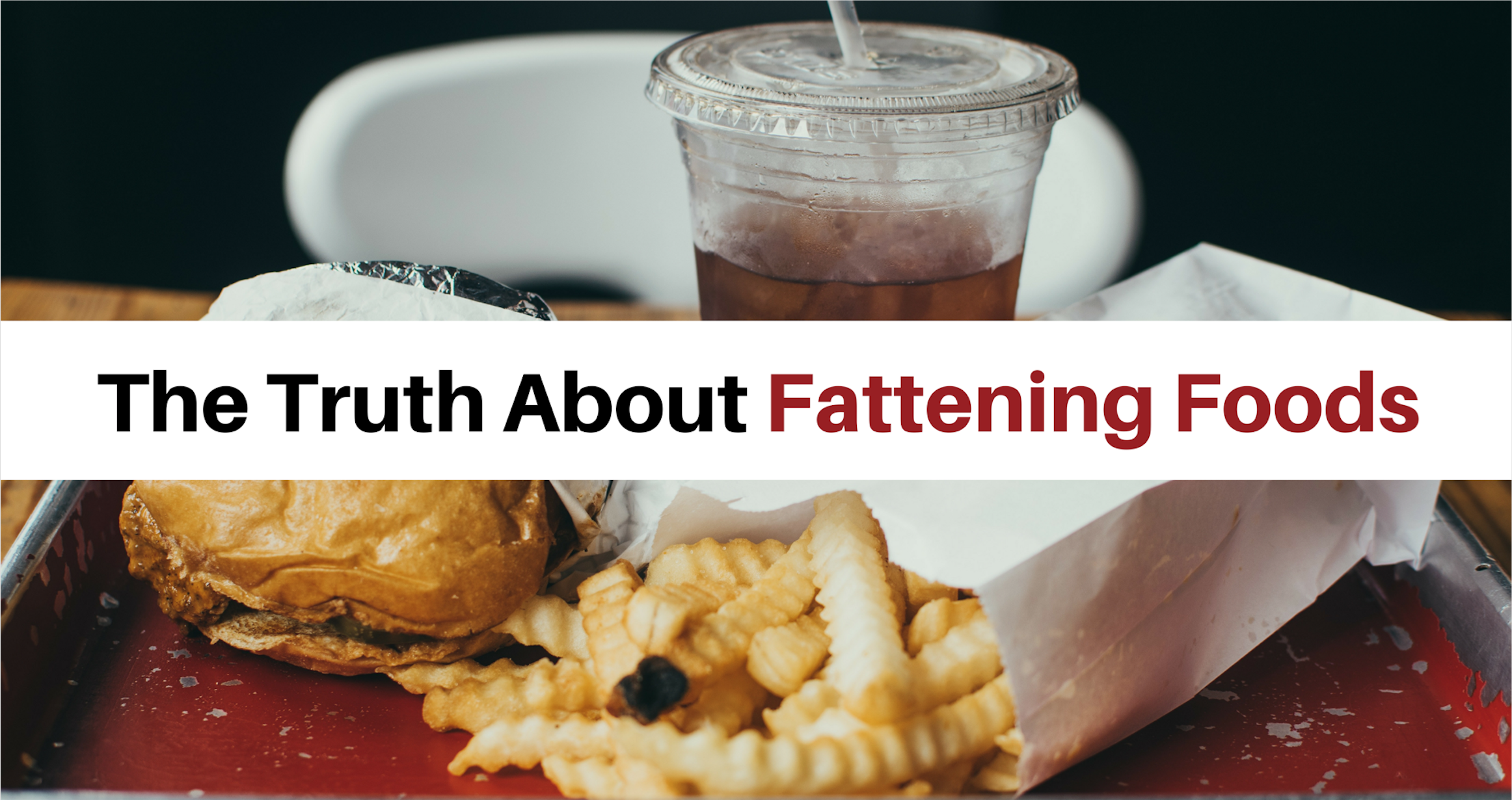You ever notice how often foods get labels? I don’t mean the actual packing. I’m talking about everything from literal “low-fat” labels right on the box to the figurative all-carbs-are-bad mentality. We think these foods are good and those are bad. This is healthy and that is fattening. But that’s not how it works.
Demonizing food isn’t a dietary strategy.
Yet it’s what most people do. Instead of an inclusive eating program, we put ourselves on over-restrictive diets. Instead of moderate indulgence, we dive headlong into harsh rigidity. And instead of a plan that allows for a little wiggle room, we beat ourselves up over the slightest misstep.
Labeling foods as good or bad, healthy or fattening isn’t merely ineffective, it’s also counterproductive.
It’s time to rethink the labels you give to the food you eat. They’re usually inaccurate and always unhelpful. That’s why I’m here to give you the skinny on all of these so-called fattening foods.
Eat This, Gain Fat: The Truth About “Fattening Foods”
There’s one thing that, if eaten, will always lead to excess body fat and weight gain. Only one. Best part? If you don’t eat it, you’ll never gain weight.
That’s right. And this isn’t sensational hyperbole or an attempt to convince you with pseudo-science. This is literal fact:
The only thing you can eat that’ll make you gain weight is too much much food.
That’s it. You can literally eat anything you want without gaining a single pound—so long as you don’t eat too much. Yes, even the “fattening foods” you shouldn’t have. (Good thing, too, because cheesecake is delicious.)

Similarly, eat too much of anything and you’ll gain weight. That means that even those super “healthy” gluten-free and organic energy bars they’ve got at Whole Foods can still make you gain weight. #sorry
No foods are inherently good or bad, healthy or fattening. The food isn’t what’s fattening, too much is.
He Lost 27 Pounds… Eating Twinkies (Here’s How)
Seriously, this guy Mark dropped 27 pounds in 10 weeks on a diet full of pure junk. Because thermodynamics.
The laws of thermodynamics dictate that energy cannot be created or destroyed. In other words, the caloric energy you put into the body will either be used or stored as fat for later use.
We consume calories whenever we eat food and burn them doing everything from breathing to running a marathon. Even simply maintaining life burns a certain number of calories each day.

If you consume more calories than you burn in any given day, those extra calories will lead to energy storage and weight gain. If you consume fewer calories than you burn in any given day, that caloric deficit will be a key component of weight loss.
That’s the simple science of it. No matter what you eat, your internal energy balance is the most important indicator of weight gain, loss, or maintenance.
Mark Haub famously put this to the test with his “Twinkie Diet.” Well, it wasn’t really a test. He’s a professor of nutrition at Kansas State University. He knows his thermodynamics. And he did it to prove a point.
Professor Haub wanted to show the world that weight loss is primarily a product of energy balance (calories in vs calories out).
Mission accomplished.
Fattening Foods Don’t Exist, But Fattening Amounts Do
The flip side of Haub’s point is important when it comes to this conversation about fattening foods. If energy balance is most important when it comes to losing weight, it’s also most important when it comes to gaining weight.
When it comes to fattening foods, what you eat doesn’t matter nearly much as the amount.

Consuming 200 calories is 200 calories.
If it’s too much, it’s too much. And if it’s too much, you’ll gain weight. It won’t make a thermodynamic difference if you’re getting it from fruits and veggies or fries and a shake. “Fattening” foods won’t make you fat. It’s the extra calories that will.
Mark ate junk food and didn’t gain weight because he ate the right amount—his calories were on point. Good for him. But this isn’t about Haub. This is about you and helping you get better results.
So before you worry about how many grams of protein, carbs, or fat you’re eating…
Before you focus on meal frequency, nutrient timing, or carb cycling…
And before you stress the minutiae of micronutrients…
Do This One Thing: Get Your Calories Dialed In
If you’re consuming the proper amount of food (read: calories), no fattening foods exist. Period. Thanks to thermodynamics, they simply can’t. And with that flexibility comes joy. Because food’s the best.
Need to know how to set up calories and nutrition to fit your goals…




